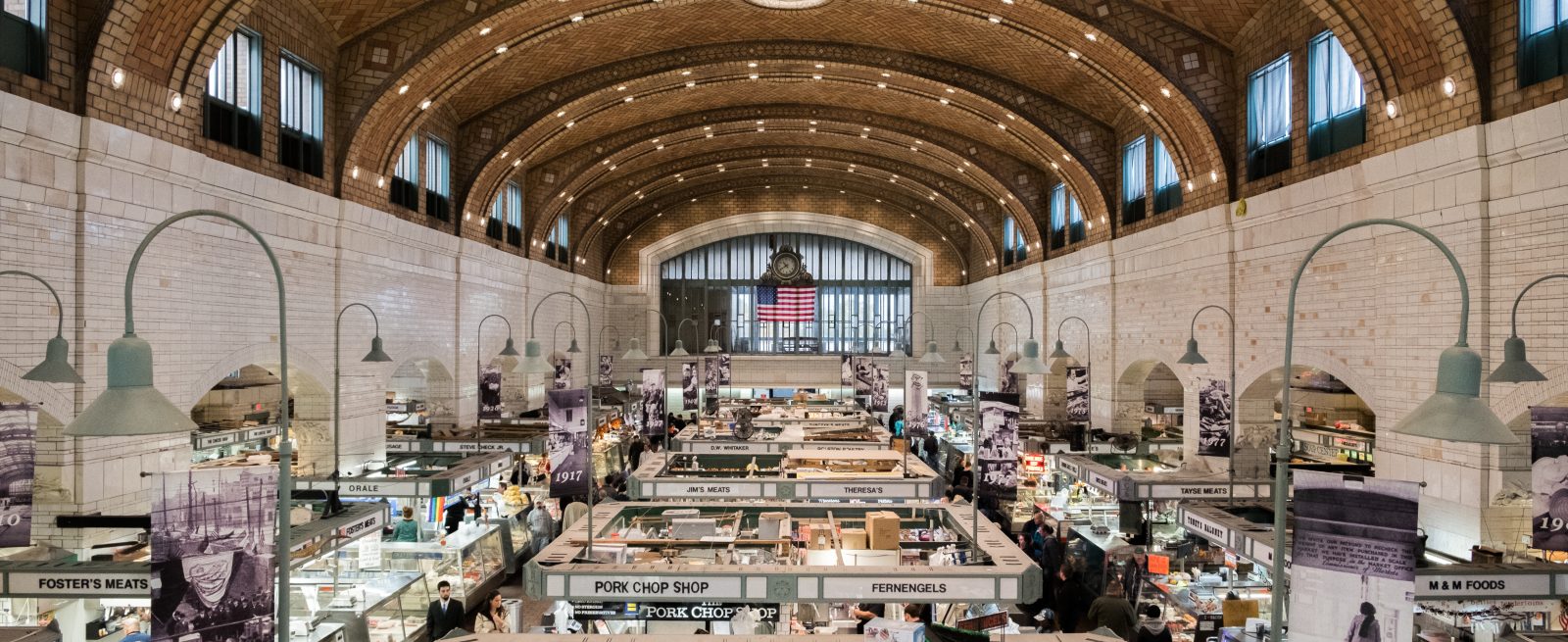MRM Food Hall Focus: Are Food Halls Right for Your Restaurant Business?
4 Min Read By Michelle Flores-Gonzales
Food halls are becoming more popular and you may be wondering if they might be a good option for your restaurant business.
Food halls, like food courts, bring together a variety of different food vendors. Where they differ though is in quality. Food courts tend to have an emphasis on fast food fare whereas food halls offer chef-driven menus with a focus on quality and authentic cuisine. Think of a food hall as a mall. From kiosks and small specialty stores to large department stores, the mall offers an option for nearly every level of business. If having your own bricks and mortar location is out of your range right now, then a food hall might provide a nice starting point. In fact, like many outlets in malls across America, you may decide to only ever operate from a food hall!
In this post, we'll go over some of the factors that may weigh into your decision on whether or not to have a presence for your restaurant in a food hall.
The Costs Involved
If you have a standalone restaurant then you are going to be locked into a long-term lease. Food halls typically have a much lower cost of entry with more flexible terms than those your typical landlord can offer. This factor alone makes food halls a great choice if you want to try your hand at the restaurant business or expand your brand’s footprint.
In terms of price, you'll usually be paying much less for a food hall because you are getting less space. Some food hall operators charge a percentage of your sales in addition to the base rent. This can offset some of the cost savings. However, the cost of a standalone restaurant cannot be measured just in the raw cost per square foot. With the much larger area of a dedicated restaurant, you will incur extra costs for build-out and maintenance.
Similar to the cost of build-out, you can also expect to spend significantly less on labor due to the smaller size of the venue. Because it is not a full service restaurant, food halls can reduce the wait staff to just the people taking the orders at the counter. In most cases, the volume of business you do will be smaller at a food hall, so you have reduced costs on kitchen staff as well.
Competition in Food Halls
You may be concerned that opening a restaurant in the same building with dozens of other restaurants may negatively impact your sales. In most cases, this isn’t something you need to worry about. Part of the appeal of food halls is that no two outlets are the same so people can try food that they might not have tried before. They are also great for groups of people with different tastes. Food halls offer an amazing social setting that is ideal for attracting heavy and diverse guest traffic. Some of these people will have made up their minds where they want to eat. Others, especially those who are out to explore the food hall, will be open to eating anywhere. This gives you a great opportunity to attract new guests.
Most food hall owners are well aware that having an entire establishment full of burger joints would drive many of those tenants away. Not all of the burger places are going to be able to compete. For this reason, the focus of these managers is to ensure a wide variety of establishments are present in their food halls. Again, it is this variety that will give you access to potential customers that might not have ever had you on their radar where you only in a standalone location.
Part of this variety, that you do not see in the food courts of old, is in the pricing. Food halls will have restaurants that are catering to expensive tastes along with those that are catering to more affordable tastes. This means that offering a similar type of food to another tenant does not necessarily translate to stiff competition.
Food Hall Pros and Cons
Food halls are trending across America and consumers seem drawn to them. If you’re just dipping your toe into the restaurant business, then opening up in a food hall provides a lot of benefits. You’ll not only have reduced operating costs, but the month to month rent will give you more leeway if things do not work out. Food halls provide a relatively safe platform for you to test the market even when you plan on expanding to a full-service restaurant later.
If you already have a standalone restaurant and are looking to expand then a food hall could be a great option to do so affordably. You will be getting traffic to your food that you might not have gotten otherwise. This can lead to an uptick in sales at your brick and mortar locations. In effect, your food hall location would serve as a calling card for the standalone locations.
The reduced cost of operation comes with a cost of its own. Even a successful food hall location is not going to bring in the volume that a successful standalone restaurant would. Your profit margins may be higher, but your total volume will be lower. It is worth considering how this fits into the goals you have for your business and the risk-to-reward calculations that you are willing to make.
Flores has helped many clients navigate the pros and cons of setting up a food hall venue. The first step is to write a pro-forma for the concept. Understand the numbers and whether or not the idea of a food hall makes sense for your bottom line. After all, opening a restaurant concept is a business and only successful if they can turn a profit. We’ve seen a huge increase in the popularity of food halls and it doesn’t show signs of slowing any time soon. If you’re an aspiring chef or restaurateur, this could be a prime time to launch or expand your business.


